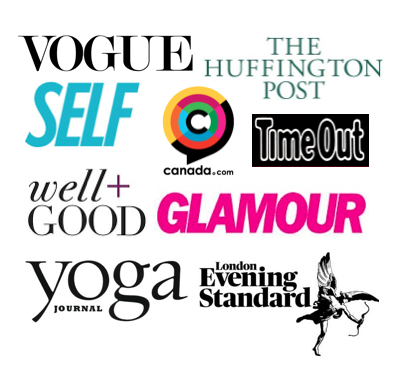Much to our dismay, there has been a great deal of fur on the runway this week. (We applaud designers like Stella McCartney who do not use leather, skins, or furs in any of their products.) In fact, New York Fashion Week has raised a lot of questions surrounding sustainability, as we see below. Going green never goes out of style, by the way.
By David Dietz -
For New Yorkers, the arrival of February means Mercedes Benz Fashion Week is right around the corner. With the first shows just days away, Soho is already abuzz as press, models, designers and industry insiders are set to descend upon New York for the semi-annual showcase of the most extravagant looks of the year. The enormity of the occasion is staggering with up to 100,000 people expected to brave the cold and travel to the city. With so many eyes fixed on the runway, the fashion industry has a chance to make a global statement.
For decades New York Fashion Week and its illustrious designers have been thepreeminent trendsetters. Collections from the runway inspire entire product lines, shape pop culture and determine the world of style for seasons, if not years to to come.
And yet, for an industry predicated on staying ahead of the trend, Fashion Week has fallen embarrassingly behind on one of the biggest trends of all: sustainability.
Fashion Week has watched silently as whole industries shift their thought processes to be competitive in the rising green economy. Agriculture has experienced an organic food revolution. Tesla is one of dozens of companies driving the change in the auto industry and yet the only mention of green during fashion week is when discussing the color of a silhouette.
An industry that survives on determining what is cool is at risk of becoming passé. Strangely the wound is self-inflicted; fashion is the second dirtiest industry in the world after oil and gas. Now a movement has taken hold to make fashion more sustainable. From major fashion houses like Gucci and Stella McCartney to hundreds of up-and-coming brands, companies of all sizes are beginning to respond to the increasing consumer demand for products that fit their style and their values.
After facing stiff criticism from Green Peace, Kering, the parent company of both Gucci and Stella McCartney, announced plans to eliminate all hazardous chemicals used in the production of their brands by 2020. At Modavanti, an online retailer for sustainable style which I founded, there are over 100 brands that have gone even further, having committed to using organic cottons, recycled materials or fair trade production. These brands have proven that sustainability can not only be stylish but that it also defines a new era of luxury.
Celebrities too have led the charge. Livia Firth, co-founded the Green Carpet Challenge working with Stella McCartney, Chopard and others while Suzy Cameron has launched a similarly named Red Carpet Green Dress to pair celebrities with sustainably made attire for awards season.
With such momentum, one would think that Fashion Week would take a page from the Detroit auto shows, where hybrid and electric cars are front and center, parading innovation in front of the media and celebrating the steps designers and industry leaders have taken to make the fashion industry cleaner.
Sadly, other than a brave effort by “The Green Shows” (a collection of sustainable designers that showed in NY Fashion Week 2012), there has been little mention of sustainability on fashion’s biggest stage. Meanwhile in places like London, Copenhagen, Melbourne and other international cities, sustainability is front and center.
Thankfully, as the paradigm of luxury shifts to sustainability and conscious consumerism takes hold, hundreds of up and coming designers have responded on their own, making beautiful eco-friendly and ethical fashion. While Fashion Week may not acknowledge it, the movement towards fashioning a better future is already underway.
Originally published on HuffingtonPost.com.
-Art via Red Carpet Green Dress





No Comments